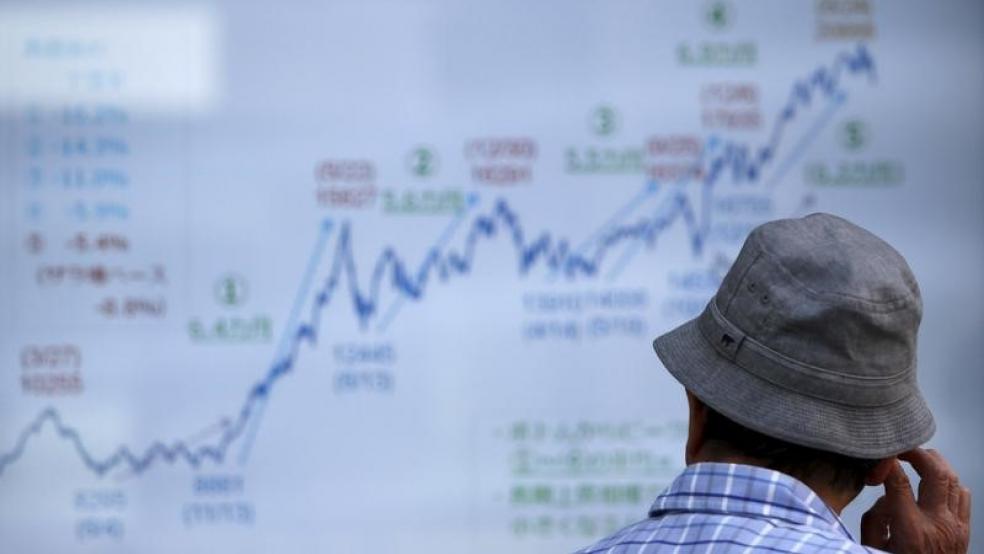LONDON (Reuters) - World stocks were left clinging to a fifth day of gains on Tuesday as weak data from Europe's largest economy Germany and a dip in commodity markets eroded a recent global rebound.
Asian markets had been lifted to a two-week high by what looks to set to be the most generous Trans-Pacific trade deal in a generation but the momentum failed to reach Europe's main bourses. [.EU]
London's FTSE <.ftse> and Germany's <.gdaxi> were both down 0.1 percent, the CAC 40 in Paris <.fchi> was flat while the euro
and sterling were firmer. [/FRX]The MSCI All World index of global stocks <.miwd00000pus> was up 0.2 percent.Nerves about the health of the global economy were rattled by an unexpected fall in German industrial orders as demand from China and regions outside Europe weakened.Orders for German goods fell 1.8 percent on the month, confounding expectations for a 0.5 percent rise. The fall came before the VW emissions test scandal broke, which economists say may have done more damage to German exports."The decline in orders from abroad paints a dim picture," said Thomas Gitzel, an economist at VP Bank. He expected the Chinese economy to stabilize, which could help German industry.However, the recent rebound in commodity markets came to an abrupt halt. Oil dropped back after Brent crude had taken a run-up at $50 a barrel for the first time in two weeks [O/R], while copper and other industrial metals fell for the first time in three days. [MET/L]The dollar <.dxy> also dipped on a growing sense that the Federal Reserve will keep deferring a raise in U.S. interest rates. New research from Goldman Sachs predicted it would wait until well into 2016.The Australian dollar was the standout performer among major currencies, helped by an unexpectedly relaxed message from its central bank on threats to growth that dampened speculation of further rate cuts this year.The Aussie has been one of the big losers from a slowdown in China over the past year but some traders said much was now priced in, especially given signs Australian miners might be taking market share."The message from the RBA seems to be steady as it goes, there is no panic," said Richard Benson, co-head of portfolio investment at currency managers Millennium Global Investments in London. "They don't sound like they want to cut."BOJ JOBThe mood overnight in Asia had been more upbeat. MSCI's broadest index of Asia-Pacific shares outside Japan <.miapj0000pus> climbed 0.6 percent to touch its highest since Sept. 18.Japan's Nikkei <.n225> ended up 1 percent, extending its rebound from an eight-month low hit a week ago on sustained speculation that the central bank might add to its already enormous stimulus program.The Bank of Japan began its two-day policy meeting on Tuesday. It is widely expected to hold monetary policy steady but pressure is building on it to act."One of the two big persistent concerns has faded," said Masashi Oda, senior investment officer at Sumitomo Mitsui Trust Bank, referring to expectations of a near-term Fed hike, "so investors are taking risks."Also underpinning sentiment, 12 Pacific Rim countries including the United States, Japan and Canada reached the most ambitious trade pact in a generation.It is likely to face scepticism from U.S. lawmakers but if approved, it would cut trade barriers and set common standards from Vietnam to Canada which could reshape industries and costs. (Addition reporting by Madeline Chambers in Berlin and Patrick Graham in London; Editing by Ruth Pitchford)



